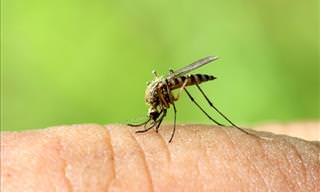
The pear is one of the tastiest fruits you can find, but more importantly – it is packed to the brim with health benefits. This fruit was domesticated over 3,000 years ago, though some speculate that the pear and human history have been intertwined since the Stone Age.
Throughout history, pears were among the most celebrated kinds of fruit. In Homer’s Odyssey, it is said that “the pear is the gift of the gods”, while in the court of French King Louis XIV, the pear was considered to be a luxurious delicacy. Nowadays, one can find this marvelous fruit in stores year-round, and despite that, it still remains a gift from the heavens for many reasons.


1. Lowers high blood pressure – Pears are rich in antioxidants and anti carcinogens, which help to reduce blood pressure.
2. Cancer prevention – High levels of vitamin C and copper protect your cells from free radicals. Additionally, the pear’s skin contains glutathione – a powerful anti-carcinogen.
3. Reduces cholesterol levels – Thanks to a high concentration of soluble dietary fibers, pears are able to reduce LDL levels. Most of the fiber is found in the pear’s skin.
4. Colon health – Aside from cholesterol, dietary fibers also help regulate your colon and keep its lining healthy.
5. Natural cure for constipation – Pear juice is a natural remedy for constipation.
6. Lower fevers – Pears have fever-reducing properties, especially when juiced.



7 Invaluable Secrets to Ensure Your Longevity
There's a whole range of lifestyle books, and arguably even more so-called lifestyle gurus, but these 7 longevity tips backed up by science are all you need.

Healthier Than You Thought - 9 Health Benefits of Eggplant
For many years Eggplant was believed to have no health benefits. However, it was recently discovered that this was only due to the way we cook it!

7 Myths About Burning Calories
Burning calories is something we all want, but we need to know what we're doing first, and that means disproving these 7 common but misguided myths about calorie burning.

Say Goodbye to Rotten Fruits & Veggies with These 12 Tips
The way you store your groceries can affect their shelf life. These 12 tips will help keep your fruits and vegetables fresh for longer.

12 Healthy Foods You Can Eat At Night Guilt-Free
12 healthy foods can be eaten guilt-free at night!

Tiny Magical Balls – 6 Health Benefits of Tapioca
Some people love them, some find them odd, but these tiny pearls are actually quite good for you and packs a nutritional punch that can boost your overall health considerably.

This Mindfulness Trick Will Allow You to Sleep Easy
Meet mindfulness meditation, which will enable you to achieve a restful sleep through guided imagery, giving you the energy for the next day.

18 Reasons To Keep Hydrogen Peroxide At Home
Hydrogen peroxide is one of the best substances you can keep around the house, and this is because it has many different uses. In fact, here are 18 of them.

5 Common Insect Bites You Should Fear and Beware!
Sometimes bug bites can be relatively harmless, and sometimes they can be much more worrying. But how do you know when? Here are 5 bug bites to watch for.

NEVER Put These 5 Things in the Microwave!
Some things should never go in the microwave, because of the health dangers. Here are 5 things you should keep out of the microwave.

These Hidden Dangers Are Lurking in Your Cleaning Products
Household cleaning products are toxic for your health and the environment. Here are a selection of more friendly cleaners.

Who Needs a Professional Cleaner With These Tips?
These stubborn stains can easily be removed with a little guidance.

Learn 10 Simple Tricks For Regaining Control Of Your Body!
We've all experienced laughing when inappropriate, crying uncontrollably, and even annoying hiccups. With these 10 tricks, you'll be able to regain control!

13 Natural Home Remedies for Mosquito Bites
To help you alleviate the bites, itching, and swelling simply, it's recommended to try the following 13 methods that will significantly ease your discomfort and allow you to get through the summer safely.

10 Hotel Secrets You Should Be Aware of Before Booking
There are numerous tricks of the trade that hoteliers employ to maximize profits. Here are 10 hotel secrets that you must know before booking your next trip.

12 Fruit and Vegetables That are Dangerous to Consume
Which fruit and vegetables have the most pesticides on them? Find out here!

If You're Hungry at Night, You Should Eat These Foods!
If you are partial to a midnight snack, here are 7 foods that you should consider eating.
 8:22
8:22
8 Easy Ways to Get Your Knife Razor Sharp
Got a blunt knife at home? Sharpen it easily with these nifty hacks.

Before You Answer That Email, Here are a Few Tips
Here are 9 common situations that require a response and the recommended and less recommended ways to say what you want.

This is How Often You Should Change Your Bed Sheets
The majority of us don't change our bed sheets as often as we should, and that can cause serious health issues. Here's how often you should change them.

10 Hair Myths That Are Damaging Your Hair
We're here to bust 10 persisten hair care myths, that are actually doing more harm than good to your hair

Book Recommendations: 10 of the Best Reads for Dog Lovers
If your best friend is a dog, then you’ll this list of the best book about dogs.

Click to See Unbelievable Uses for These Household Items
Click to learn more! We've collected Ba-bamail's best list of tips and alternative uses for things you've got lying around the house.
 10:28
10:28
How Can I Make Christmas More Affordable? - 12 Smart Tips
Save money this Christmas with these useful tips and hacks.

Some Tips You Might Not Know About Whisky
If you're a lover of whisky and would like to know how best to drink it, the guide will cover everything you need to know!

5 Home Remedies to Banish Mosquitoes From Your Life
Yo won't need to spend another cent on mosquito repellents once you have become acquainted with these natural ones!

9 Genius Ideas For Keeping Your Food Fresh For Longer
These great and simple storage tips will help you keep your food fresher for longer, and save you some extra trips to the grocery store!

A Comprehensive Guide to Growing Your Own Veggies!
There's nothing like starting the day with a fresh vegetable garden, and now you can do so every day with this ultimate veggie growing guide.

14 Creative Uses For Old Wire Coat Hangers
Coat Hangers are not just useful for hanging your favorite clothes in the closet, they are handy in so many other ways too!

Say Goodbye to Your Weeds with These Natural Weed Killers
Trying to find a way to kill your garden weeds without killing your plants? These 8 all-natural weed-killing tips are just what you're looking for!

How to De-Ice Your Freezer and 11 Other Practical Tips!
How to find something you lost, how to find pipes under your floor and more handy shortcuts everyone should know.

These Tricks Have Helped Me Become Smart About Cleaning
12 tips and tricks to clean your house and maintain your furniture and appliances with ease

For the Good of Your Clothes, Stop These Laundry Mistakes!
Here are 9 common washing mistakes that reduce the quality and durability of your clothes.

How to Clean the House Quickly and Efficiently
There are plenty of cleaning hacks out there, but which ones actually work? Find out here!
 2:15
2:15
How to Win at Every Tic Tac Toe Game...
Unlock the secrets to mastering Tic Tac Toe with our latest video guide.

40 Common Tourist Traps to Avoid on Your Next Vacation!
If you're planning a trip abroad, please be aware of these 40 common tourist scams!

8 Ways You're Cooking Chicken Wrong
What's the best way to cook chicken? Get the best flavor out of your chicken by avoiding these 8 common mistakes.

9 Facts You Didn’t Know About In-Flight Food And Drinks
Airplane food is notorious, but since we don't have any other options, the following 9 tips will make the culinary experience that much more enjoyable.

Here's How You Can Declutter Your Home in Just One Month
If you're looking to declutter your home but don't know where to begin, these 12 tips might just help you out!

Follow These 3 Easy Steps to Ripen an Avocado in Minutes
This foolproof trick will make your rock hard avocado soft and creamy in mere minutes. Just follow these simple instructions...
 14:12
14:12
Learn to Replace a Bathroom Faucet: Step by Step Tutorial
after watching this step by step video tutorial, you’ll know how to replace a bathroom faucet like a real pro...

Vicks Has So Many Different Uses. Here Are 8 of Them!
Vicks can be found in households across the globe. This is a very useful ointment which has many unique uses. Check some of them out here.

Warning: Are You Overlooking These 10 Home Risks?
Home is where the heart is, but it’s also where a load of potential dangers lurk as well. Here are ten of them!
 15:01
15:01
16 Survival Gadgets for Any Emergency Situation
These cool gadgets can be extremely useful in any emergency situation.

9 Smart Ways to Store Your Clothes Without a Closet!
Don’t have a closet? No problem. Store your clothes using these handy tips.

If You Own a Cat, Avoid These 8 Common Mistakes!
Most cat owners do their utmost to take care of their feline companions, but we all make mistakes. Here are 8 mistakes cat owners must stop making!
 4:26
4:26
Here Are the Top Ten Uses for Baking Soda
This video demonstrates how to use baking soda to solve a number of daily problems!


